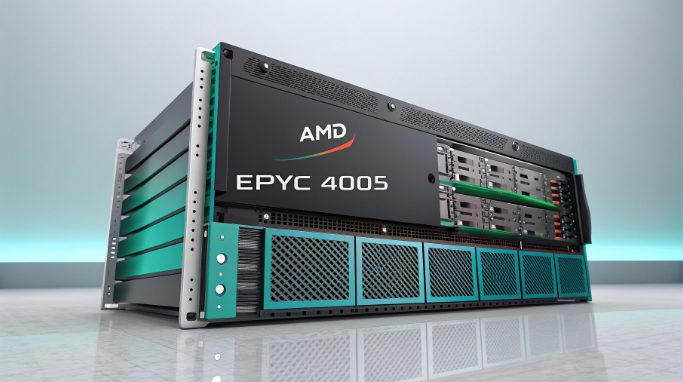AMD EPYC 4005 Servers: Optimal Use Cases for Business

The AMD EPYC 4005 series represents a significant milestone in server hosting technology, offering an impressive balance of performance and cost-effectiveness for various business applications. As organizations increasingly demand efficient computing solutions, understanding the optimal use cases for these servers becomes crucial for tech-savvy decision-makers.
Deep Dive: EPYC 4005 Series Technical Specifications
The EPYC 4005 series, built on AMD’s innovative Zen 4 architecture, delivers remarkable processing capabilities with a focus on efficiency. These processors feature:
- Up to 32 cores and 64 threads
- Base clock speeds reaching 3.2GHz
- L3 cache configurations up to 128MB
- PCIe 5.0 support with up to 96 lanes
- DDR5 memory compatibility
Optimal Business Scenarios and Workloads
The EPYC 4005 series excels in several key business scenarios:
- Web Hosting Operations: Perfect for hosting multiple websites with moderate traffic loads
- Development Environments: Ideal for continuous integration/continuous deployment (CI/CD) pipelines
- Virtualization Platforms: Efficient for running multiple virtual machines
- Database Applications: Suitable for medium-sized SQL and NoSQL deployments
- Edge Computing: Optimal for distributed computing scenarios
Cost-Benefit Analysis
When evaluating the total cost of ownership (TCO), the EPYC 4005 series demonstrates compelling advantages:
- Initial Investment:
- Lower acquisition costs compared to higher-end server processors
- Reduced cooling infrastructure requirements
- Compatible with standard server platforms
- Operational Expenses:
- Enhanced power efficiency reducing electricity costs
- Lower cooling costs due to improved thermal design
- Simplified maintenance requirements
Real-World Implementation Cases
Several successful deployments showcase the versatility of EPYC 4005 servers:
- E-commerce Platform Migration:
- 50% reduction in hosting costs
- 30% improvement in page load times
- Enhanced customer experience metrics
- Software Development Company:
- Supported 200+ concurrent developers
- Reduced build times by 40%
- Improved resource utilization
Deployment Best Practices
To maximize the potential of EPYC 4005 servers, consider these technical recommendations:
- Hardware Configuration:
- Minimum 64GB DDR5 RAM for optimal performance
- NVMe storage for improved I/O operations
- Redundant power supplies for reliability
- System Optimization:
- BIOS configuration tuning
- OS-level performance adjustments
- Workload-specific kernel parameters
Purchase Considerations and Guidelines
When selecting an EPYC 4005 server configuration, evaluate these critical factors:
- Workload Requirements:
- Expected concurrent users
- Data processing volumes
- Application resource demands
- Infrastructure Integration:
- Network bandwidth requirements
- Storage architecture compatibility
- Backup and disaster recovery needs
Future-Proofing and Scalability
The EPYC 4005 platform offers several advantages for future growth:
- Vertical Scaling Options:
- Memory expansion capabilities
- Storage upgrade paths
- Processing power enhancement options
- Horizontal Scaling Potential:
- Cluster configuration support
- Load balancing capabilities
- Distributed computing readiness
Conclusion
The AMD EPYC 4005 series servers represent an excellent choice for businesses seeking a balance between performance and cost-effectiveness in their hosting infrastructure. Whether deploying web applications, supporting development teams, or running business-critical workloads, these servers deliver reliable performance while maintaining operational efficiency. As organizations continue to optimize their server hosting strategies, the EPYC 4005 series stands out as a compelling solution for modern business computing needs.

